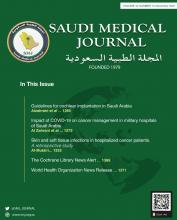Severe acute respiratory syndrome coronavirus-2 (SARS-CoV-2) is also called novel corona virus has caused one of the most fatal pandemics to date and is still having devastating effects worldwide. There is a need for a molecular framework to determine how the virus deploys in the host’s cellular machinery. The CoV-2 genome encodes several proteins including 4 structural proteins and 16 non-structural proteins (NSP). The SARS-CoV-2 variants showed faster spread rate as compared to its ancestral strains.1 A rapid replication of viral ribonucleic acid showed the proposed increased transmission rates in different populations. Over time, there are reported different mutations in spike protein of SARA-CoV-2. For instance, the D614G mutation was considered as one of the earliest mutations in the spike protein encoding, which causes viral infectivity. The D614G mutation also alter the conformation of spike protein for binding of enzyme 2 (ACE2), for fusion-competent state and also to angiotensin-converting. This mutation did not modify its sensitivity to the neutralization of antibody. It is imperative to know the ongoing mutations/changes in the gene sequence of SARS-CoV-2, which can significantly help in stopping or minimizing the increase of virus spread in the communities. The virus transmission, its evolution and pathogenic characteristics can be traced by studying several available genomic sequences along with their submission dates. The effectiveness of recently developed vaccines can be monitored through study of variants in the SARS-CoV-2 genomes. Currently there emerged several novel variants of concern in many countries. These novel variants possess mixtures of different mutations along with losing of N-terminal domains and receptor-binding domains in spike and other nonstructural proteins. Among these mutations some noticeable variants of concern include B.1.351 (501Y.V2) variants which have appeared in South Africa and B.1.1.7 in the United Kingdom. Similarly, the P.1 and P.2 genetic lines are seen in Brazil.2 In October 2020, another variant of concern was detected in India which was designated as delta B.1.617.2 (AY.n here n=1-3) variants.3
To cope with COVID-19 pandemic, Kingdom Saudi Arabia (KSA) also adopted major actions to reduce the spreading process of SARS-COV-2, including suspending its visa program and banning travel to neighboring Gulf countries. The KSA also limited international flights and performed proper screening to protect the public by reducing virus transmission. Genomic sequencing is also being performed to screen the variants in the population. Universally several new variants have been reported having increased transmission rates and pathogenicity. In the present investigation, we screened whole sequences of gens taken from the SARS-COV-2 isolates in KSA to detect novel variants.
The genetic sequences of SARS-COV-2 samples were obtained from the ‘Global Initiative on Sharing Avian Flu Data’ (GISAID, Munich, Germany) server database from December 2019 to August 6, 2021.4 A total of 2,658,263 whole genome sequences are reported worldwide and are compared to the reference genome of Wuhan-Hu-1 (Accession NC_045512) using the CoVsurver application. All the detected SARS-CoV-2 variant genome mutations were arranged and given in supporting information.
If a variant has increased severity or transmissibility compared to the baseline it is considered to be a VOC (variant of concern). This term also applies to variants that have reduced antibody, vaccination, treatment neutralization, as well as those that have a lower rate of successful diagnosis. Among the 2,658,263 complete gene sequences for SARS-CoV-2, 964 were submitted from KSA. These 964 genomes were screened using the variant analysis function built into the GISAID. From among these genomes, 4 alpha variants and one beta variant were found. These variants were VOC Alpha 202012/01 GRY (B.1.1.7 with accession number EPI_ISL_3237048, EPI_ISL_3237047, EPI_ISL_3236930, and EPI_ISL_2151336), and VOC Beta GH/501Y.V2 (B.1.351+B.1.351.2+B.1.351.3). The mutations in all these variants were screened. The majority of the mutations were detected in spike proteins (Table 1), however the nucleocapsid, NSP3, NSP6, and NS8 proteins also harbored a significant number of mutations. A comparison of the SARS-CoV-2 alpha and beta variants from KSA isolates has been provided in Table 1. Three recently emerged SARS-CoV-2 variants of concern are alpha formerly known as GR/501Y.V1)/B.1.1.7, beta known as GH/501Y.V2/B.1.351, and gamma which are formerly known as GR/501Y.V3/P.1.4 Many variations in their RBD and spike proteins are found, which include K417N/T, E484K and N501Y.5 Three rare mutations in spike protein (I402V), including the NSP2_L39Q (Appendix 1) protein, have also been detected in the alpha variant. However, the effect of these mutations on virus severity needs to be explored. Variant 2 (501Y) contains some unusually higher genetic alterations, including at least 24 mutations 14 of which are non-synonymous.
- Mutations in alpha and beta variants in Saudi Arabian isolates.
In conclusion, we screened whole genome sequences of SARS-CoV-2 of KSA cases to detect novel variants. Four alpha and one beta SARS-CoV-2 isolates were detected in isolates as recently submitted to the GISAID. Screening variants are vital to improve the diagnosis and analyze the vaccine effectiveness against these newly emerging variants for better management of public health system in KSA. Continuous screening of SARS-CoV-2 genomes in KSA is vital to observe novel variants in population for better surveillance and precautionary measures.
- All the detected SARS-CoV-2 variant genome mutations.
Acknowledgment
The authors are thankful to the Institute of Research and Consulting Studies at King Khalid University, Abha, Kingdom of Saudi Arabia for supporting this research through Grant Number 2-N-20/22 and the support of Research Center for Advanced Materials Science is highly acknowledged. For computer time, this research used the resources of the Supercomputing Laboratory, King Abdullah University of Science & Technology (KAUST), Thuwal, Saudi Arabia. We would like to thank SCRIBENDI (www.scribendi.com) for English language editing.
Footnotes
Disclosure. This study was funded by the Institute of Research and Consulting Studies at King Khalid University. Grant Number: 2-N-20/22
- Received August 9, 2021.
- Accepted September 30, 2021.
- Copyright: © Saudi Medical Journal
This is an Open Access journal and articles published are distributed under the terms of the Creative Commons Attribution-NonCommercial License (CC BY-NC). Readers may copy, distribute, and display the work for non-commercial purposes with the proper citation of the original work.






